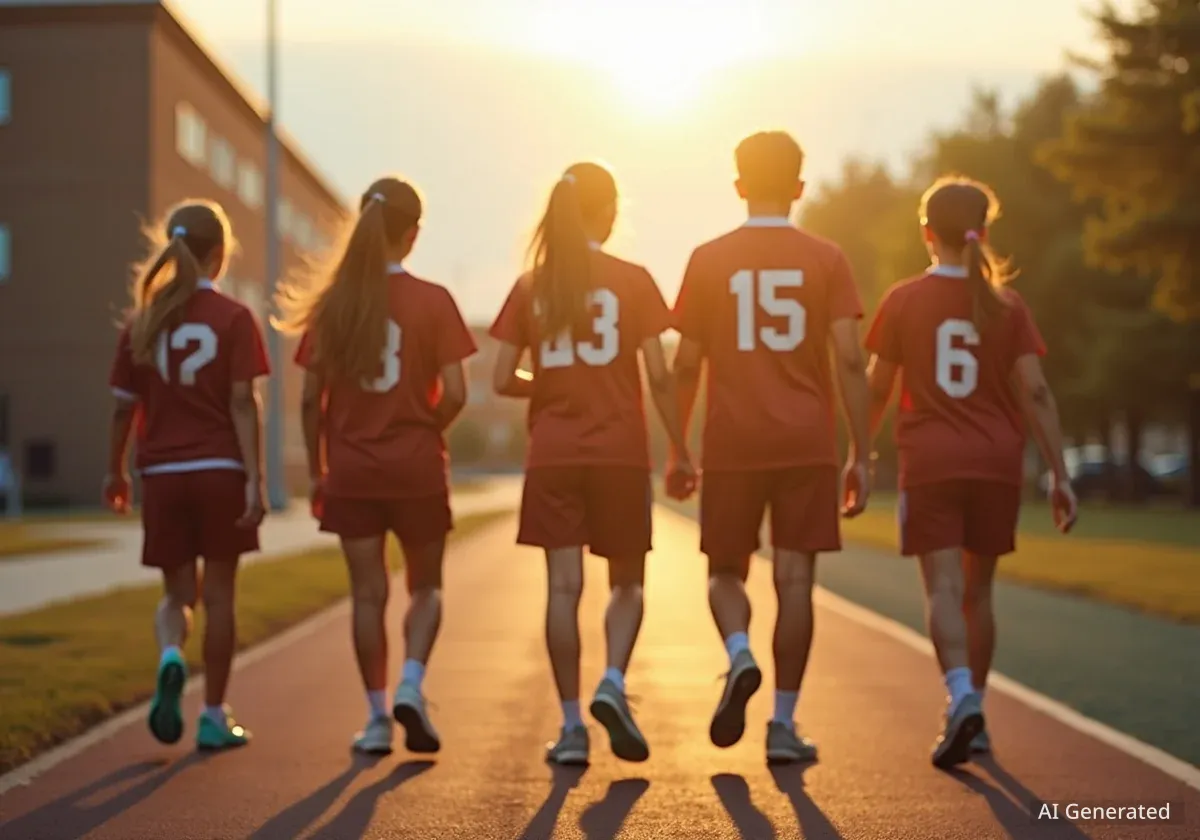The Pennsylvania Interscholastic Athletic Association (PIAA) has implemented a significant policy change, now permitting students from private and parochial schools to participate in sports programs at public schools. This decision, which took effect on September 15, 2025, resolves a federal lawsuit filed by families who argued their children were being denied athletic opportunities.
Key Takeaways
- Students at private religious schools in Pennsylvania can now play sports at public schools.
- This is only permitted if the student's private school does not offer the specific sport.
- The policy change stems from a 2023 federal lawsuit filed by religious families.
- The PIAA is currently updating its bylaws to formally incorporate the new rule.
A New Policy for Pennsylvania Student-Athletes
A new directive from the PIAA has opened doors for student-athletes across Pennsylvania. Effective immediately, students enrolled in private or religious schools that lack certain sports programs can now try out for and join teams at their local public schools.
Previously, PIAA rules barred such participation, limiting students to the athletic offerings at their institution of enrollment. The change marks a fundamental shift in the state's high school sports landscape, aimed at expanding access for all students.
The Legal Challenge Driving the Change
This policy revision was not a spontaneous decision but the result of legal action. In 2023, a group of families with children in religious schools filed a federal lawsuit against the PIAA. Their legal argument centered on the claim that the existing rules were discriminatory, preventing their children from participating in sports simply because their chosen school did not offer them.
The lawsuit contended that these students were missing valuable opportunities for personal development, teamwork, and potential college scholarships that are often tied to high school athletics.
Background on PIAA Governance
The Pennsylvania Interscholastic Athletic Association, Inc. (PIAA) is the governing body for most high school and junior high school sports in the Commonwealth of Pennsylvania. It establishes rules and regulations for interscholastic athletic competitions, ensuring fairness and safety for nearly 350,000 student-athletes annually.
How the New Rule Works in Practice
The primary condition of the new policy is straightforward: a student from a private or parochial school is eligible to participate in a public school's sports program only if that specific sport is not available at their own school. For example, a student attending a private school without a swimming team can now try out for the team at their designated public high school.
However, if the private school does offer a particular sport, such as basketball, its students cannot join the public school's basketball team. The rule is designed to fill gaps in athletic offerings, not to allow students to choose between existing programs.
Implementation and Next Steps
Following the directive, the PIAA confirmed it is now in the process of formally amending its bylaws. This administrative step will ensure the new rule is codified and applied consistently across all member school districts in the state.
School districts are being briefed on the changes to prepare for the potential influx of new student-athletes trying out for various teams. This includes handling eligibility verification and registration processes.
Reaction from Stakeholders
The families who initiated the lawsuit have expressed their satisfaction with the outcome. Thomas Breth, special counsel for the Thomas More Society, which represented the families, reported a positive response.
"They couldn't be happier to have their children participate in these activities," Breth stated. He also noted the cooperative spirit from public school districts.
Breth added that the reception from public schools has been overwhelmingly positive. "The feedback is that the home school districts — from their athletic department, the whole way through their administration, their coaching staff, they've been nothing but welcoming of these students. They're thrilled to have them there," he said.
A Collaborative Outcome
According to legal counsel, the new policy is seen as a beneficial development for both educational systems. "So it's a really positive, I think, a really positive thing for both public education and those that are pursuing religious education through their parochial schools," Breth concluded.
This change is expected to impact thousands of students across Pennsylvania, providing them with access to sports like lacrosse, swimming, field hockey, and others that smaller private institutions may not have the resources to support. The long-term effects on team composition and competitiveness in public school leagues will be observed in the coming seasons.





